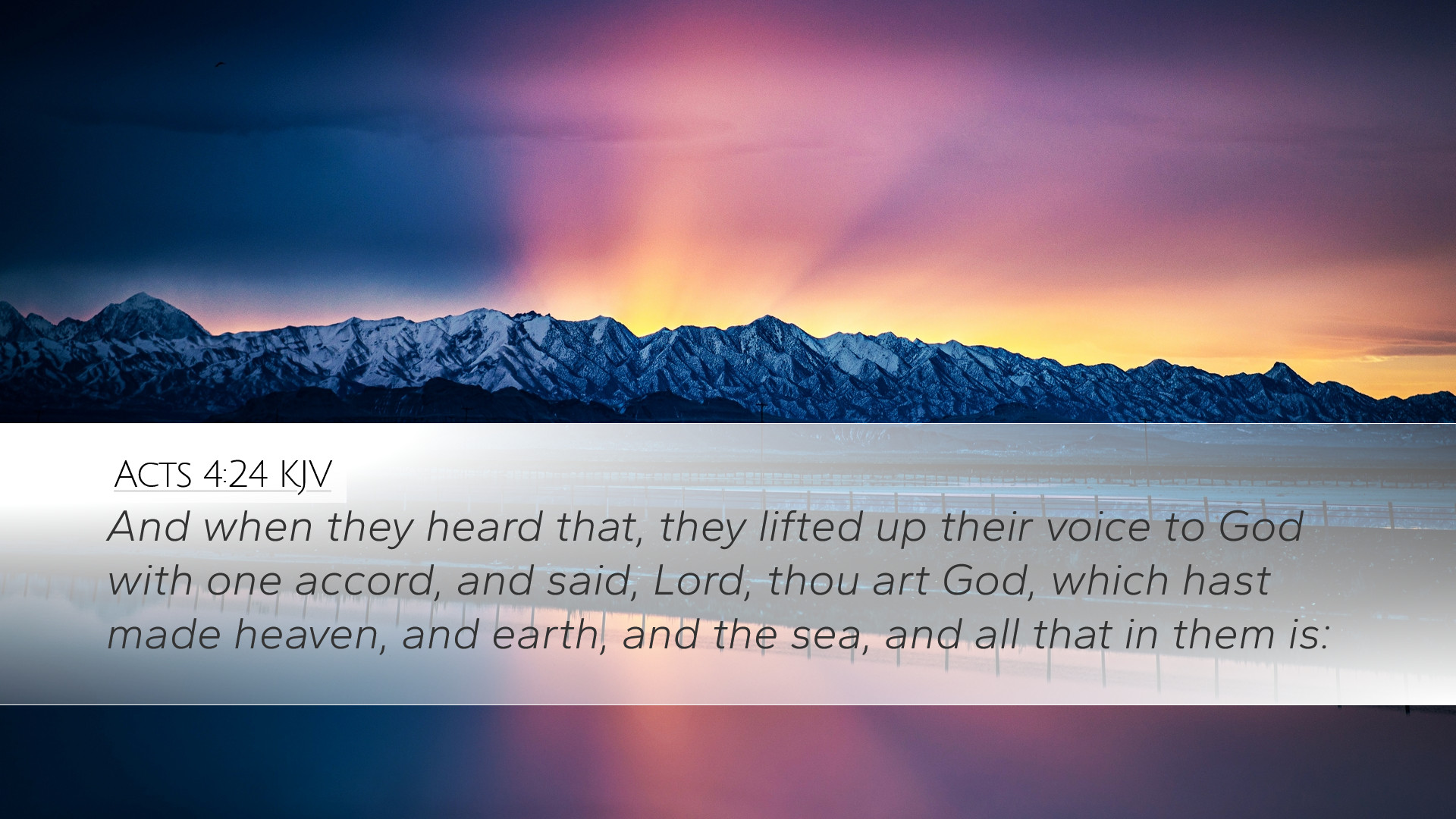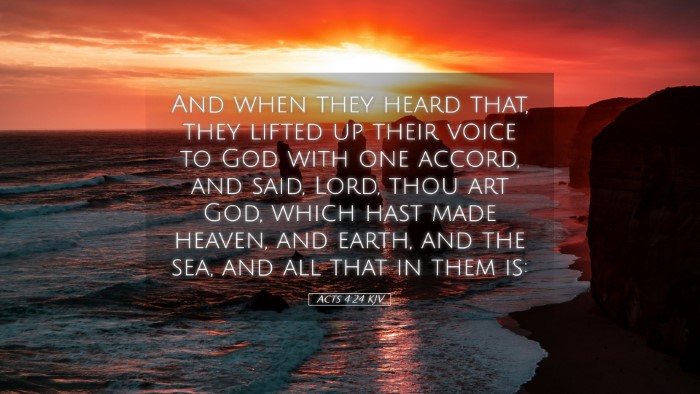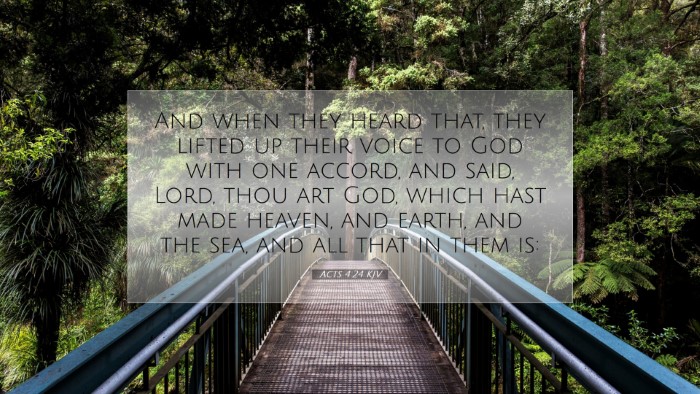Commentary on Acts 4:24
Acts 4:24 states, "When they heard it, they lifted their voices together to God and said, 'Sovereign Lord, who made the heaven and the earth and the sea and everything in them...'"
This verse follows the release of Peter and John from captivity and highlights the early church's response to persecution through prayer and worship. The significance of this passage is profound for pastors, students, theologians, and Bible scholars alike, revealing essential truths about God’s sovereignty and the nature of corporate prayer in the body of Christ.
Contextual Background
The Book of Acts records the early church’s expansion and the challenges it faced. Chapter 4 presents a crucial moment when Peter and John encounter opposition from the religious authorities after healing a lame man and preaching the Gospel. Their imprisonment only amplifies the urgency of the church's response, reflected in the prayer of unity that follows their release.
Insights from Matthew Henry
Matthew Henry underscores the importance of collective prayer. He notes that the phrase "they lifted their voices together to God" signifies the unity of believers in seeking divine assistance. This unity is vital in the face of adversity, illustrating the power of communal supplication. Henry articulates that in prayer, the church acknowledges God’s sovereignty over creation, which serves as a source of comfort and confidence amidst trials.
Insights from Albert Barnes
Albert Barnes stresses the phrase "Sovereign Lord" in this context, emphasizing God’s ultimate authority and power over all creation. Barnes notes that recognizing God's creative power provides believers with assurance in times of persecution. He elaborates that the early church’s acknowledgment of God’s control acts as a foundation for their faith, stirring a resolve to continue proclaiming the Gospel. This acknowledgment serves not just as a plea for help but as an affirmation of faith in God’s overarching plan.
Insights from Adam Clarke
Adam Clarke highlights the significance of the titles given to God within this verse. The designation "Sovereign Lord" reflects their understanding of God's relational and authoritative stature. Clarke notes that through this prayer, the early Christians were not only submitting their concerns but also celebrating God’s providence. His interpretation draws attention to the theological implications of viewing God as both creator and sustainer, which provides comfort and strength amid trials; believers are assured that their plight is known by the Almighty.
Theological Reflections
From these commentaries, we derive several theological reflections essential for the faith community:
- The Sovereignty of God: The early church's recognition of God as Sovereign Lord challenges contemporary believers to see past their immediate circumstances and affirm faith in God's overarching plans.
- The Importance of Corporate Prayer: Acts 4:24 emphasizes the need for communal prayer in facing seasons of trial and persecution. Individual prayers are strong, but unified voices magnify the power of prayer.
- Creation as a Basis for Faith: Acknowledging God as the creator of heaven and earth grounds believers' faith. It reminds them of His power and control over all aspects of life, including their struggles.
- Response to Persecution: The appropriate response to threats and persecution is not fear but prayer—specifically, prayer that acknowledges God's authority and seeks His will and empowering presence to continue the mission of the Gospel.
Conclusion
Acts 4:24 serves as a theological and practical model for how the church should respond to adversity. By blending insights from influential public domain commentaries, we see that this verse encapsulates critical themes necessary for spiritual resilience. The overarching message calls believers not just to pray, but to pray with a posture of unity, faith, and divine acknowledgment. Each scholar enriches our understanding of God’s nature and our response to the challenges of faith-based living.


